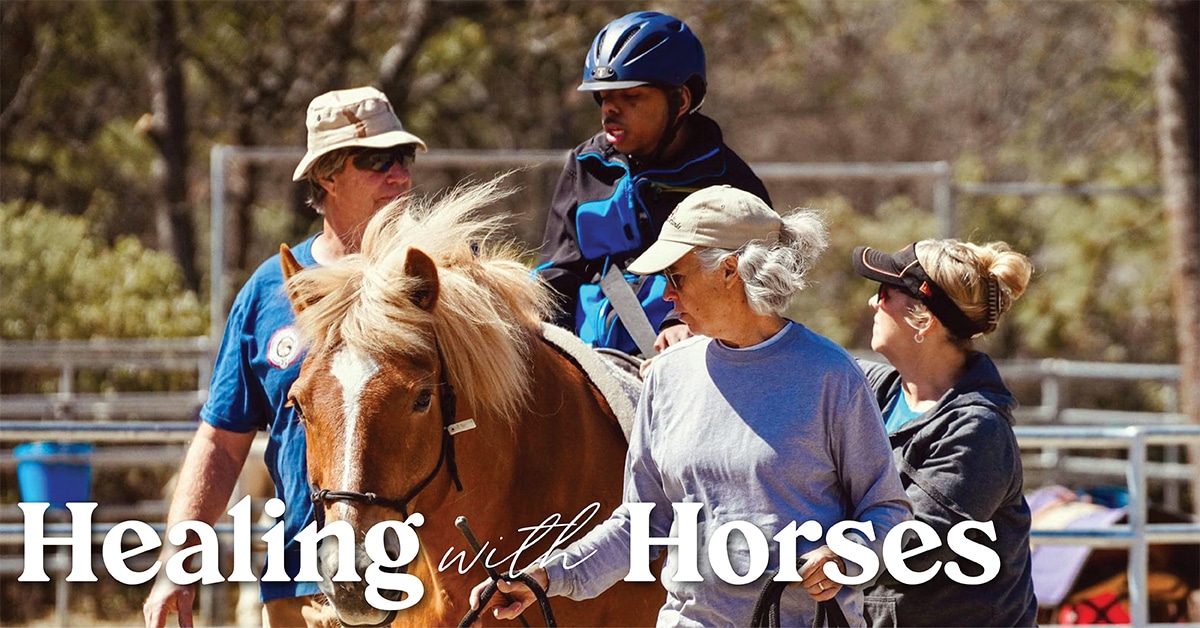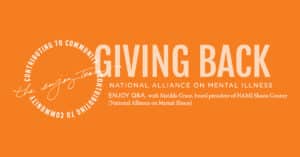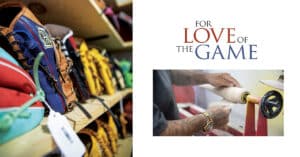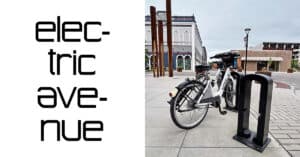Healing with Horses
Horse Therapy with Stable Hands…
Headquartered on a property in Siskiyou County, Stable Hands teaches people with disabilities adaptive horseback riding in a Professional Association of Therapeutic Horsemanship (PATH) Premier accredited program that consists of two 8-week sessions held in the spring and fall, as well as one 6-week session in the summer.
Established in 1996, the nonprofit has 38 participants for each session plus the veterans, so in its 28 years, Stable Hands has likely helped a couple of thousand people with equine therapy.
Participants and volunteers range anywhere from 4 to 94 years old; the 94-year-old started out as a participant and now volunteers with the Horses Helping Heroes program. This program serves veterans, which involves three 8-week sessions teaching a few dozen veterans how to ride horses in small group lessons. Dedicated community members/volunteers give up at least a half a day per week to help support Horses Helping Heroes.
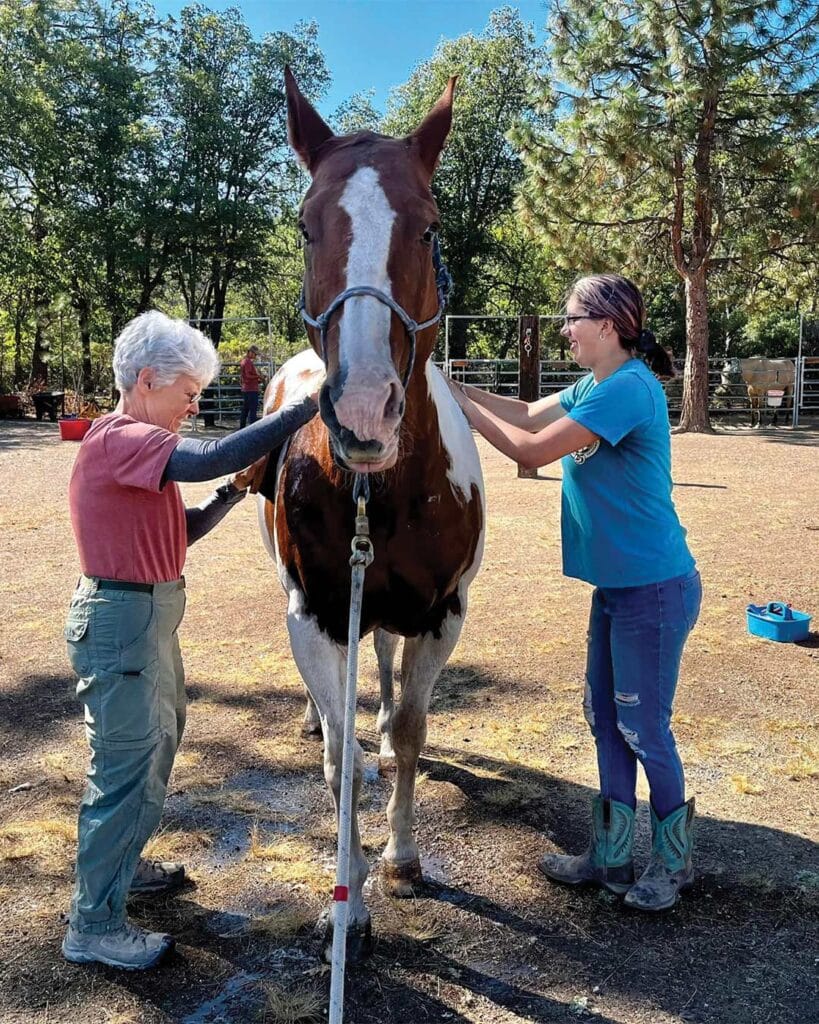
Participants in its adaptative horsemanship program come to Stable Hands with disabilities ranging from seizure disorders and PTSD to cerebral palsy, autism and Down’s syndrome.
Stable Hands Executive Director Janet Jones has been with Stable Hands for one-and-a-half years. Her friend Lee Ann Paul (a volunteer/program manager/riding instructor with Stable Hands) thought it would be right up her alley. Jones was looking for something new to occupy her time, and she has owned horses her whole life, so Stable Hands seemed like an ideal fit. “This is an interesting nonprofit and the more I’ve gotten into it, the more excited I get,” Jones says.
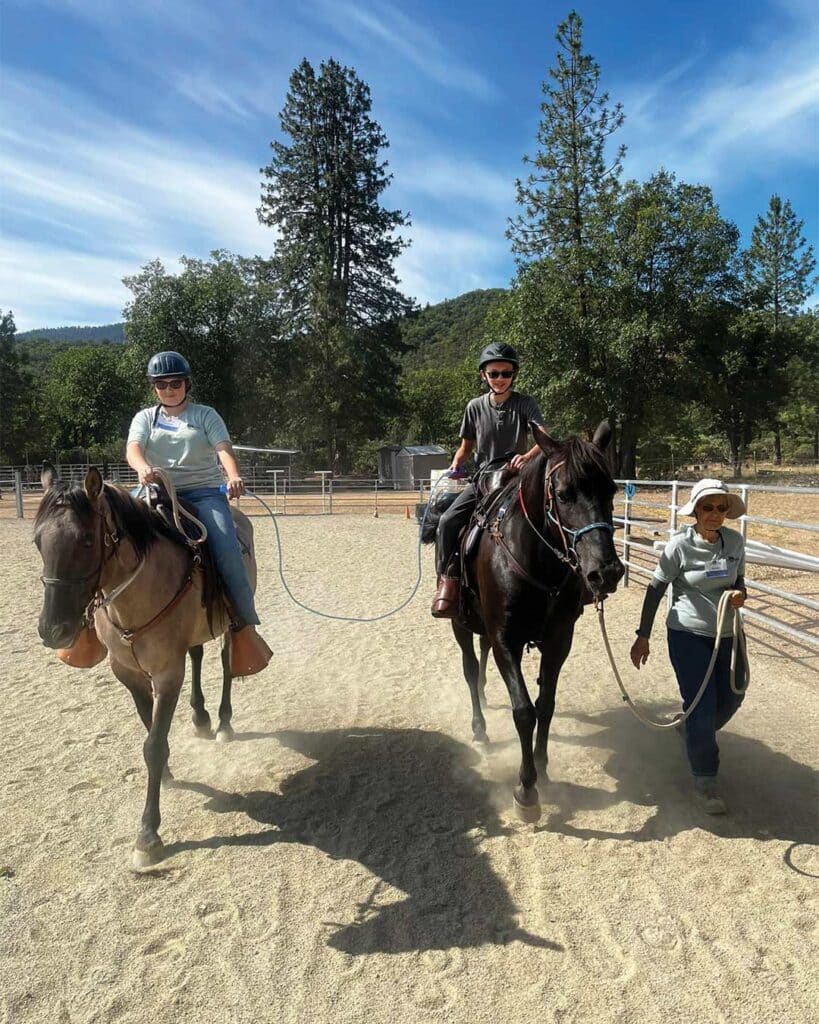
Stable Hands owns three horses, and five are on lease. One of its main challenges is finding the right horse for the program. Horses must go through a 30-day trial to gauge whether they are a fit. This past year, two horses passed away of old age and four horses retired.
“We provide excellent care for them. They only work up to three hours per day, three days a week. Our oldest horse is 24 years old and still active in the program,” Jones says. That horse’s name is Little Horse and she’s a Paint. “Horses of color tend to be favorites,” Jones adds.
To keep safety a number-one priority, each horse is accompanied by side walkers, a leader/horse handler, the instructor and the participant.
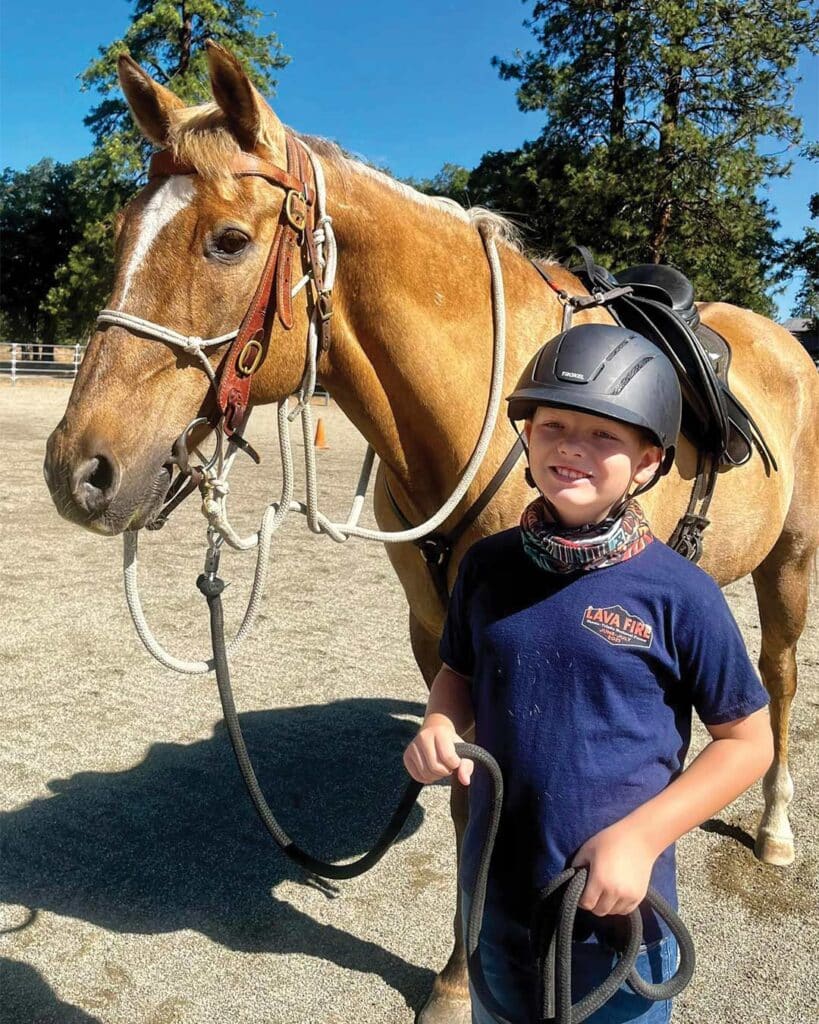
“The benefit of riding a horse is the same movement as walking, so participants develop a connection with the horse, a connection with the team, they get movement and they’re outside,” Jones says. “It also helps develop core strength, balance, endurance and independence,” she adds.
A session starts out with participants starting to develop a connection of walking the horse. Once, a rancher who showed up in a wheelchair. He got up and walked alongside the horse along with five volunteer walkers who would step back occasionally, to allow him to work on his balance. By the end of the session, he was riding the horse. “It’s very powerful when you get to see that,” Jones says. That individual was in the Horses Helping Heroes program, and it gave him something to look forward to every week. In between sessions, building up his strength became his focus.
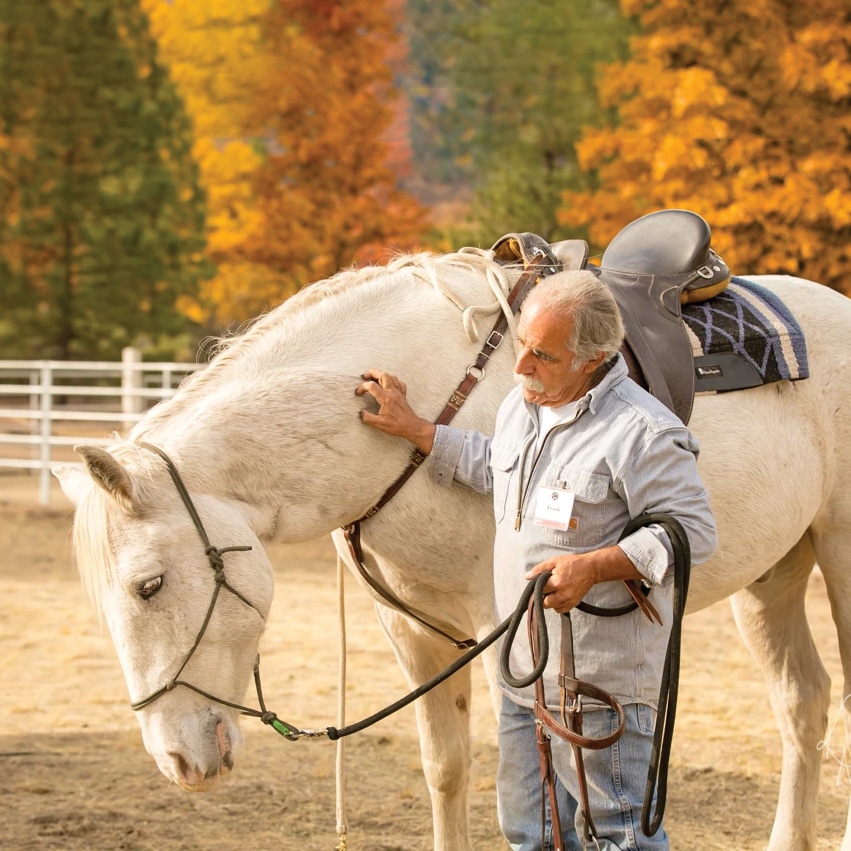
However, it takes a lot of volunteers to support the horses and do the work they do, so they (along with the horses) are at the heart of the program. “This year we have 25 volunteers, and recruiting is always a challenge,” Jones says.
Stable Hands relies heavily on donations and runs on 15 acres of private land, so being at the mercy of the landowners can also be an issue. Since its start, they have moved nine times. Stable Hands has been at its location in Yreka for the past five years.
“We have a tractor, a horse trailer, and a shed. In one sense we’re like a circus,” she says. Stable Hands yearns for something more permanent to better serve the community but can’t invest in anything that can’t easily be moved. “For example, right now we have porta potties. We’d like to buy a property… one with bathrooms that have ADA ramps would be ideal,” Jones says.
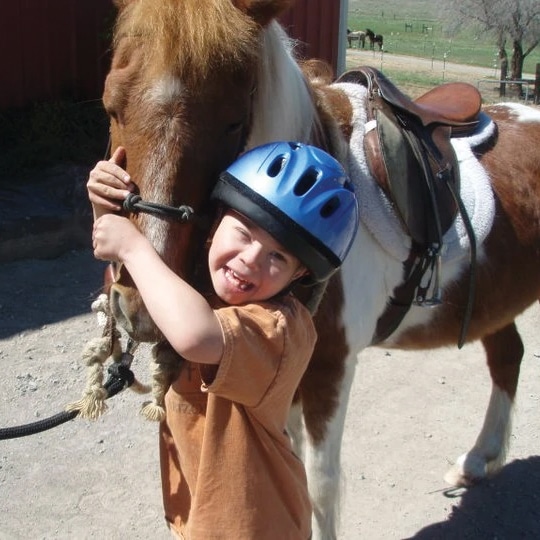
Jones is passionate about keeping the nonprofit going, though. “Marcia Cushman is one of the founders and is still an instructor and on the board. When you see how she’s stayed with the program over the years, how dedicated she is, it provides incentives to keep it alive,” Jones says.
Stable Hands is funded through donations, fundraisers and grants. It asks families to pay for 38 percent of the cost of the program, but they don’t turn anyone away. “We [fully] sponsor four or five individuals,” Jones says. They’ve had riders who’ve been in the program for more than 20 years; one young man started with Stable Hands when he was 4 and is now 24. “We have a handful of participants who’ve been in the program for at least 10 years,” she says.
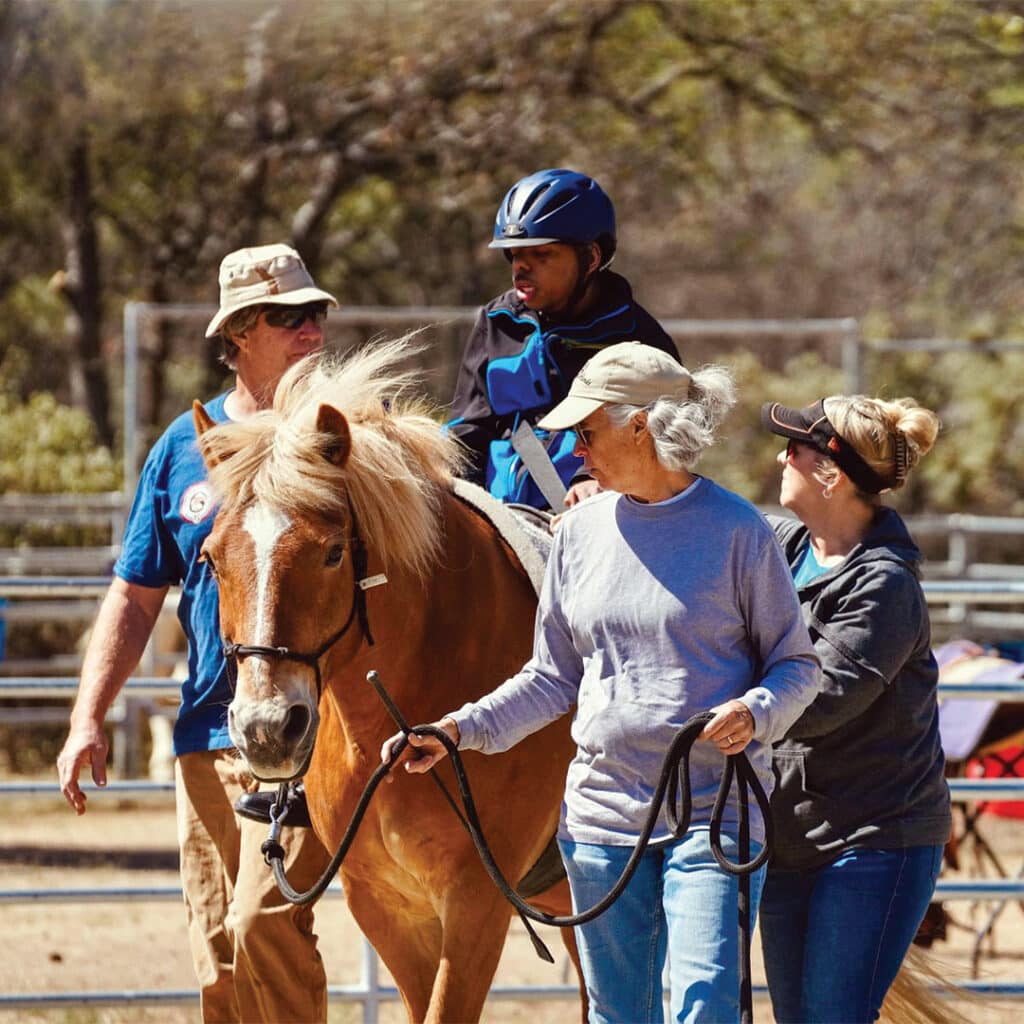
Some participants have even “graduated” out of the program, meaning they became more independent and/or their horsemanship got them to the point where they don’t need Stable Hands anymore. “They gained enough core body strength to become an independent rider; two are actively looking for their own horse,” Jones says. One of those former participants even has siblings in the program.
Jones encourages people to consider Stable Hands when Giving Tuesday comes up on December 3. “Donations are a big part of how we exist and are able to continue this work,” she says. •
Stable Hands • www.stablehands.org

